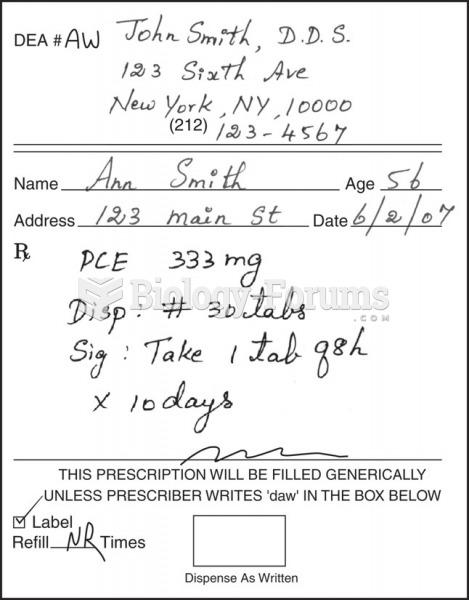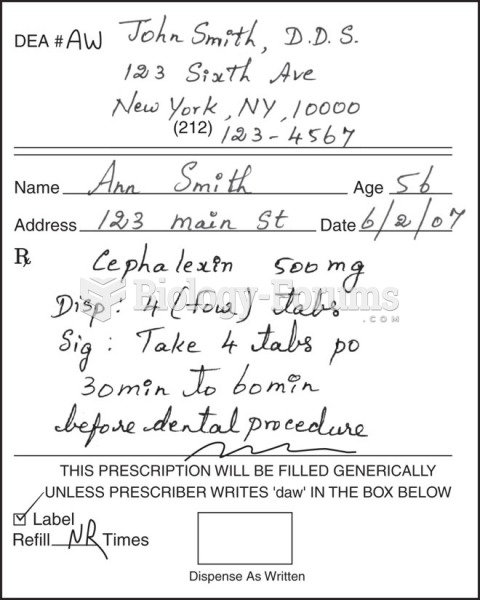Answer to Question 1
Rationale 1: An acute care hospital stay is no longer required because the needs of the client could be met in another facility.
Rationale 2: The antibiotic therapy and custodial care can be provided in a more suitable facility.
Rationale 3: Extended care facilities provide care for clients who require rehabilitation and custodial care after discharge from an acute care hospital. Because this client still receives antibiotic therapy and requires some custodial care, this type of facility can provide the best care until the client is ready for discharge home.
Rationale 4: The client may require a nursing home or long-term care facility at some point, but it is too early in the recovery to make this decision.
Answer to Question 2
Correct Answer: 4
Rationale 1: Diagnosing depression is outside the scope of nursing practice. Other interventions can be implemented before this action is considered. It also does not meet the client's immediate needs.
Rationale 2: Joint replacement may or may not be an option, but it would not be the nurse's responsibility to recommend this, nor does it meet the client's immediate needs.
Rationale 3: This client does not show any indications of requiring long-term care at this point.
Rationale 4: Assisted living facilities offer meals, laundry services, nursing care, transportation, and social activities to residents who are able to live relatively independently. They are intended to meet the needs of people who are unable to remain at home but do not require hospital or nursing home care. The client in this scenario has some physical limitations, but could benefit from socialization and interaction with peers as well as having staff available to provide limited care and health promotion activities.







